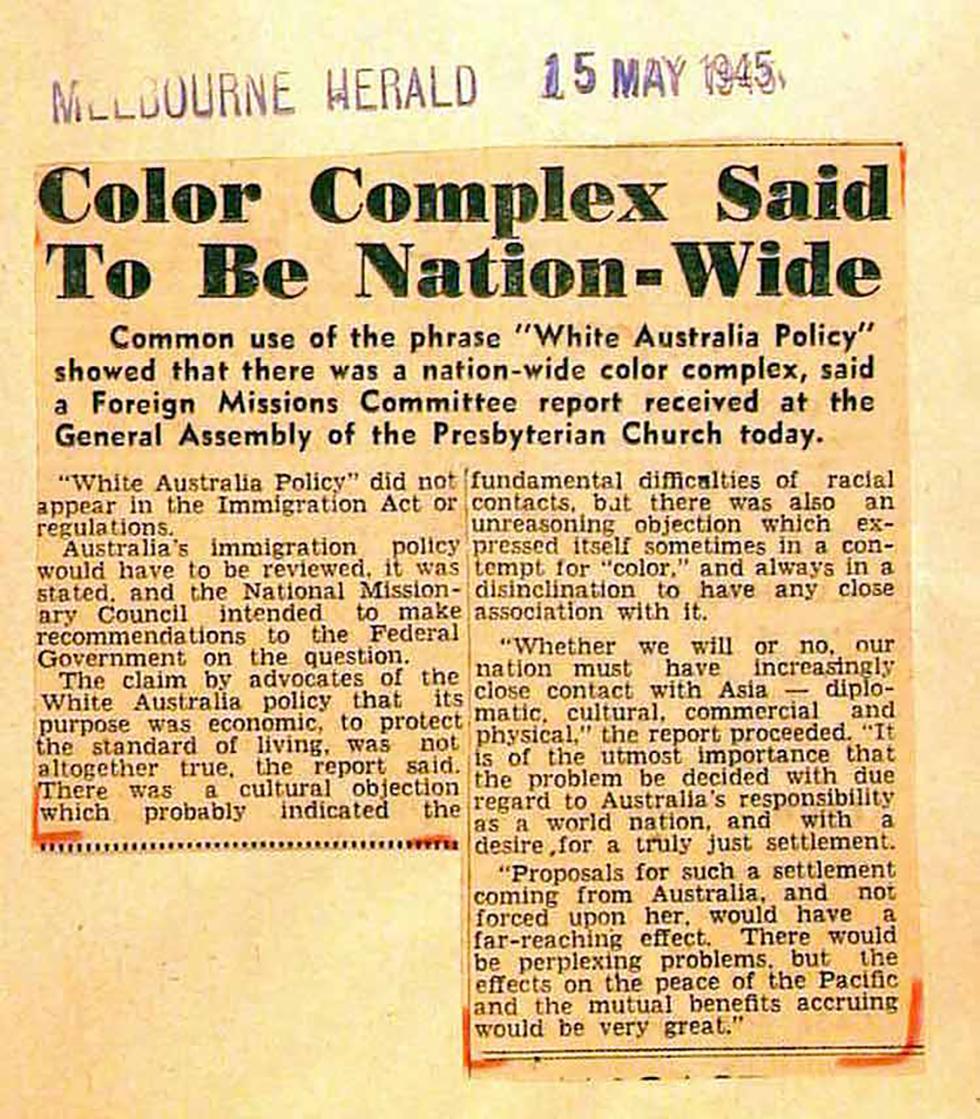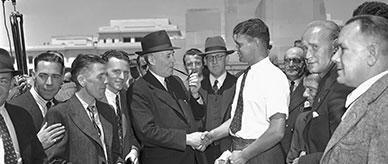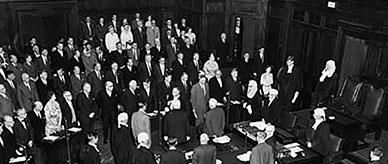


Transcript
[Newspaper clipping attached to a backing page, stamped 'MELBOURNE HERALD', '15 MAY 1945'.]
[Headline:] Color Complex Said To Be Nation-Wide
[Large text:] Common use of the phrase "White Australia Policy" showed that there was a nation-wide color complex, said a Foreign Missions Committee report received at the General Assembly of the Presbyterian Church today.
"White Australia Policy" did not appear in the Immigration Act or regulations.
Australia’s immigration policy would have to be reviewed, it was stated, and the National Missionary Council intended to make recommendations to the Federal Government on the question.
The claim by advocates of the White Australia policy that its purpose was economic, to protect the standard of living, was not altogether true, the report said. There was a cultural objection which probably indicated the fundamental difficulties of racial contacts, but there was also an unreasoning objection which expressed itself sometimes in a contempt for "color," and always in a disinclination to have any close association with it.
"Whether we will or no, our nation must have increasingly close contact with Asia – diplomatic, cultural, commercial and physical," the report proceeded. “It is of the utmost importance that the problem be decided with due regard to Australia’s responsibility as a world nation, and with a desire for a truly just settlement.
"Proposals for such a settlement coming from Australia, and not forced upon her, would have a far-reaching effect. There would be perplexing problems, but the effects on the peace of the Pacific and the mutual benefits accruing would be very great."
Related themes
Need help with your research?
Learn how to interpret primary sources, use our collection and more.


